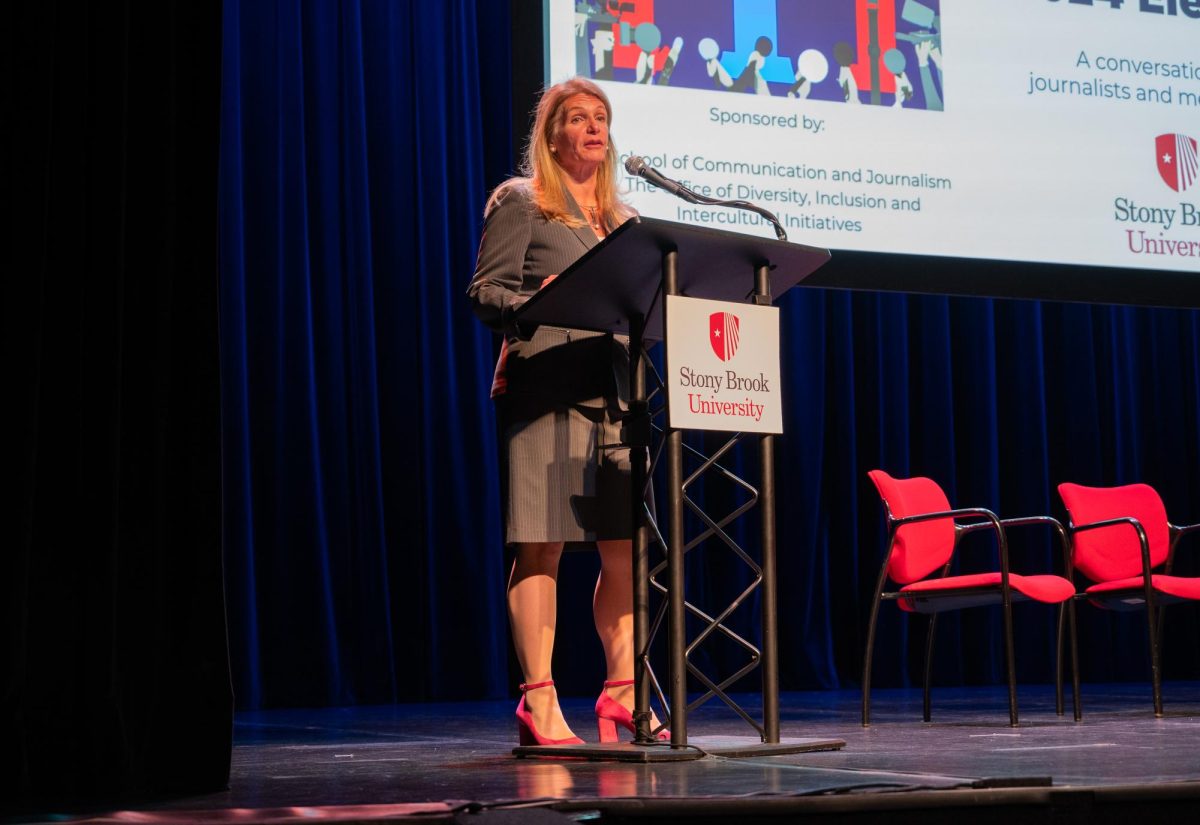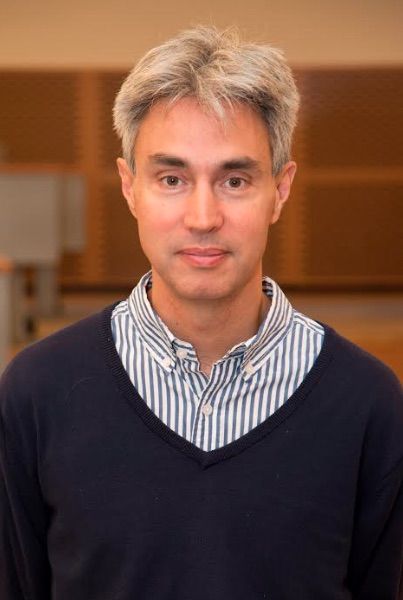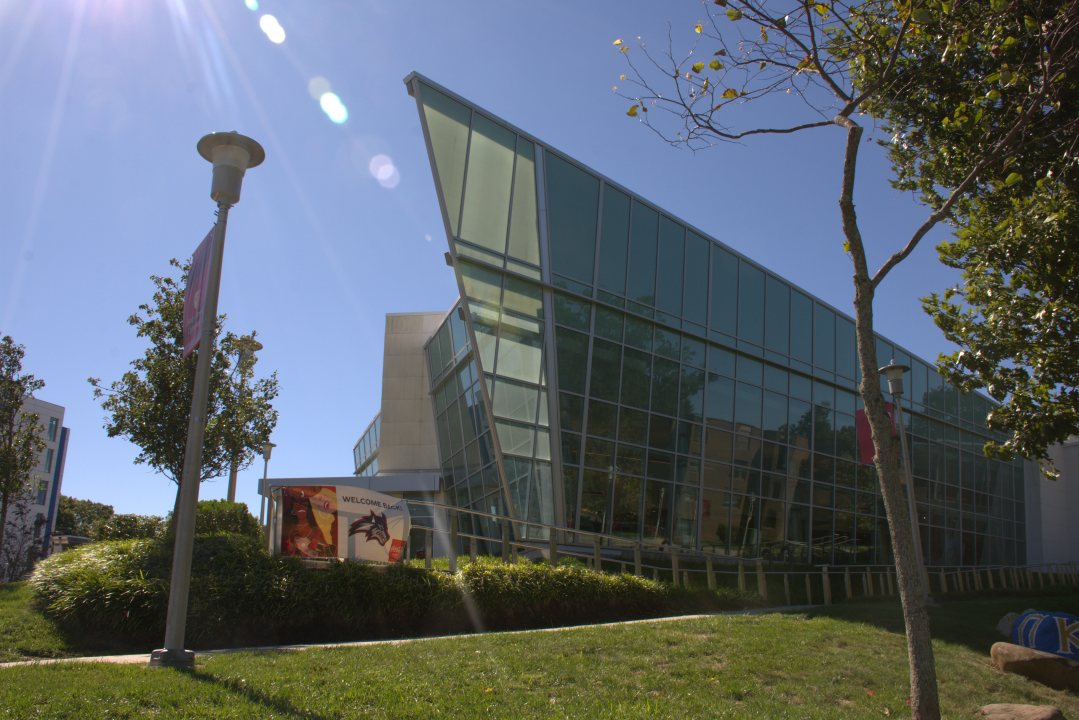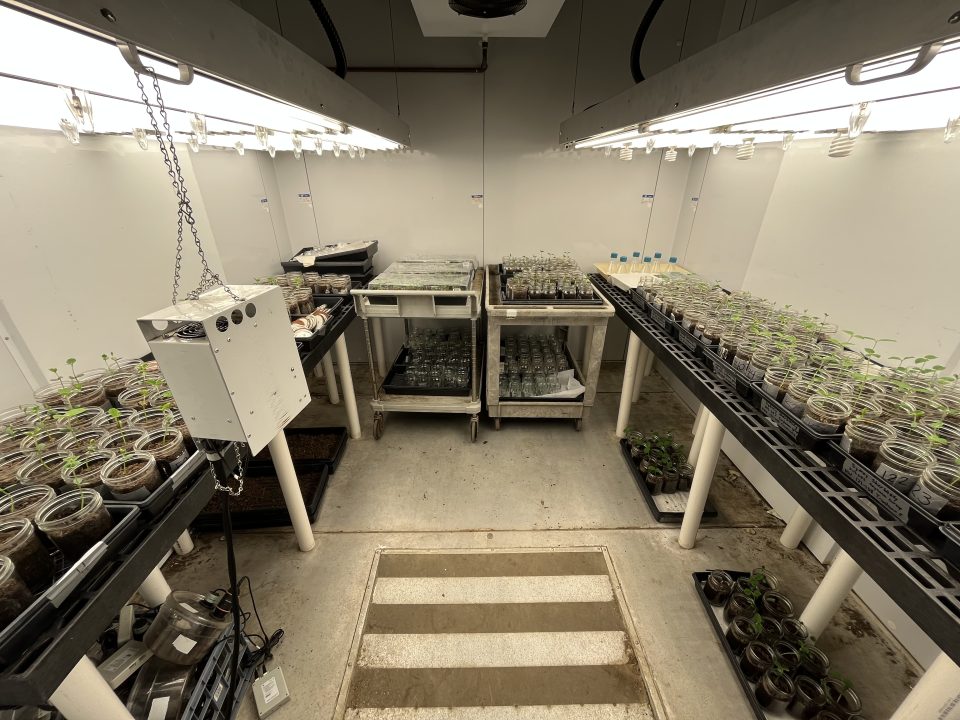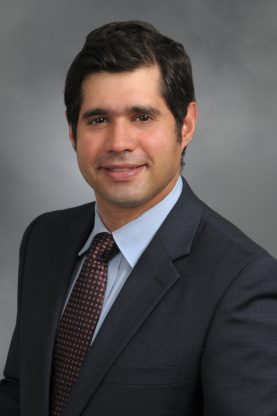
Dr. Charles K. Vorkas — a new arrival at Stony Brook’s Renaissance School of Medicine with a diverse background in research and international patient care — is leading efforts in his newly-established lab to better understand disease resistance.
After a long history of medical work, Vorkas has transitioned to a career in research, which he is beginning at Stony Brook as an assistant professor of medicine, microbiology and immunology. Vorkas took a nontraditional route to research after receiving his undergraduate degree in philosophy on a pre-medical track.
After earning his degree, he spent two years in Mozambique with the Peace Corps. There, he witnessed the effects of infectious diseases and was often in contact with individuals who were suffering from diseases such as HIV and tuberculosis (TB).
“Though I was not directly involved in the healthcare of those individuals, it definitely confirmed that this was a major global health problem that I would like to help to address in my career,” Vorkas said.
After returning to the United States, he enrolled in medical school, receiving an MD from Weill Cornell Medical College. Afterward, he completed his residency at the University of North Carolina Chapel Hill. During both his MD and residency, he once again pursued international aid efforts, this time in Malawi.
“[In Malawi], I was helping to manage a TB research project that was at an inpatient TB ward, and being there every day, you really understand the problem,” Vorkas said.
Spending time in the field treating and observing patients afflicted by disease in the Peace Corps and as a physician abroad, Vorkas found a sense of purpose in pursuing a career in preventing and treating infectious diseases.
After these experiences, Vorkas returned to his alma mater, Weill Cornell, and recognized another way to positively affect the lives of those afflicted with infectious diseases such as TB: laboratory research. As a result, Vorkas pursued a research career at Stony Brook.
“I applied last year,” he said. “It was around this time and I was looking at a couple of different places. And Stony Brook was the best package in terms of a startup for my career.”
David Thanassi, head of the Department of Microbiology and Immunology at Stony Brook University, has helped Vorkas’ transition to the University over the past year since his hire.
“Charles has been bringing his expertise and perspective and has been an outstanding addition to Stony Brook,” Thanassi said. “At seminars and in conversations, he brings up questions which broaden our points of view as researchers and remind us of the perspective of the patient when it comes to infectious disease.”
Because of his strong history in treating and researching TB, the ongoing projects in Vorkas’ lab are all focused on TB infection.
Despite being of little to no concern for daily life in the United States, TB infects millions of people each year, mostly in developing nations, and is the second leading cause of death worldwide by an infectious pathogen, above HIV/AIDS and below COVID-19.
The major project in his lab involves studying a special type of human immune cell, called a mucosal-associated invariant T cell (MAIT cell). Like other T cells, MAIT cells specialize in distinguishing the cells of the body from foreign pathogens which cause disease, allowing the immune system to fight illness.
MAIT cells, however, are interesting. While most T cells recognize foreign proteins, MAIT cells recognize the building blocks of certain vitamin molecules not produced by humans. How they do this, how they respond to infection and how they avoid targeting beneficial gut bacteria, which also produce these same vitamins for the human body, are still unclear, but Vorkas’ lab hopes to change that.
The other main project in his lab includes studying the response of natural killer (NK) cells — a class of cells that help the immune system attack pathogens — during tuberculosis infection.
Both projects aim to shed light on the mechanism behind TB resistance and explore why some individuals are more prone to infection while others are nearly immune.
Much of the research for these two projects are conducted by Vorkas and Atul Pradhan, a postdoctoral researcher in Vorkas’ lab. Pradhan received his PhD in India and recently arrived at the University to further his career in research.
They are also on the lookout for new lab members. “I’m always welcoming to [students] who want to be introduced to the lab, in a kind of low stress, low pressure environment,” Vorkas said.
For now, though, the projects in the lab are in their infancy.
“We have our general goals, but these projects could end up in any direction, as scientific research tends to do,” Pradhan said. “Time will tell what we discover and what future directions of research that will lead to.”
Collectively, this research is slated to one day be applied to what is called immunotherapy: any method of activating the tools the immune system already has at its disposal, such as MAIT cells and NK cells, to fight more effectively against diseases.
Using research on individuals whose MAIT and NK cells allow them to be resistant to TB infection, the long-term goal of this work is to establish a basic understanding of these cell types hoping to find an immunotherapeutic route to treating and preventing tuberculosis or other diseases.
Thanassi also commented on the possibility of utilizing immunotherapies such as these outside the realm of infectious disease. “This research is very exciting because it could also have applications in fighting things like cancer and non-infectious diseases just as much as infectious disease,” he said.
For Vorkas, this research has the potential for real-world impact, especially in areas of the world where tuberculosis infection is prevalent, such as Mozambique and Malawi.
“The idea that health transcends boundaries of nations is an important concept,” Vorkas said. “While most of my day is spent [in the lab], I am motivated that perhaps some of the research we conduct could one day be applied around the world to help people who are in need.”







